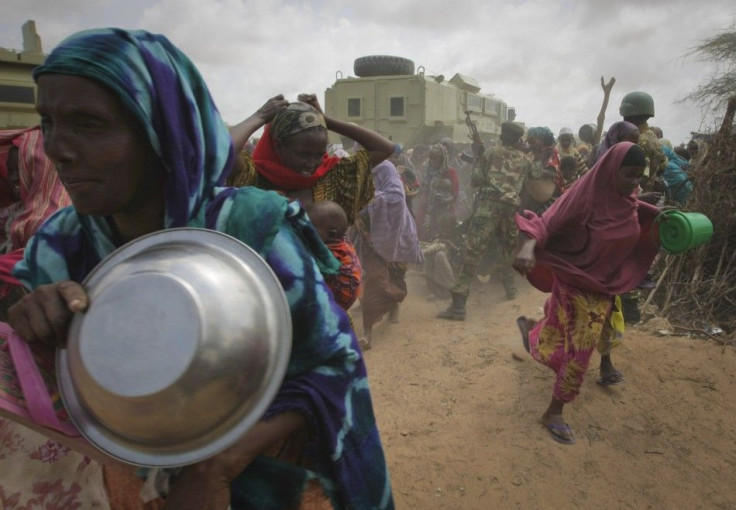Islamist Rebels Prevent Aid to Somalia

Islamist extremist group Al-Shabab, who controls large parts of Southern and Central Somalia, have said that aid agencies they expelled from the region earlier would not be allowed to return to help the nation's population as it continues to grapple with the worsening famine. Al-Shabab, is going back on a previous pledge to open up the nation to relief, a declaration that made many international aid agencies hopeful about deterring the famine in Somalia.
The United Nations declared a famine in southern Somalia's Bakool and Lower Shabelle regions and said that almost 3.7 million people in Somalia were starving because of the drought and were in need of dire help. The U.N. is among the foreign agencies that Al-Shabab has banned in the region. The U.N. World Food Program (WFP) hasn't reached out to Southern Somalia since January 2010.
The UN WFP was planning to return to Somalia with food shipments by air and sea. According to Reuters report, the U.N. told reporters that it had not heard about the rebels' new position and planned to go ahead with aid. Al-Shabab had promised to allow relief agencies with no hidden agendas to deliver aid to Somalia, stated the report.
Al-Shabaab spokesman, Ali Mohamud Raghe, told a news conference late Thursday in a rebel-held part of capital Mogadishu that agencies that were banned by them would not be allowed to operate in their territory, reported Reuters.
They had problems with people and had a hidden agenda. We shall also expel any agency that causes problems for Muslim society, he added, urging hungry Somalis to stay in their homes and wait for the rain to come rather than going to foreign-run refugee camps.
According to a report in Voice of America, Al-Shabab considers the UN's declaration of famine in Somalia a propaganda.
Canada has promised $50 million in humanitarian aid to East Africa. It is not clear whether Canadian relief agencies are also among the group banned by the Islamist group.
With some 10 million people affected by drought and famine in the triangle of death that includes Kenya, Somalia and Ethiopia, East Africa is in urgent need of help from around the world.
Somalia, a country besieged by civil war since 1991, is experiencing its worst famine in six decades. The Transitional Federal Government (TFG) which controls only a small part of the country is largely ineffectual in its dealings with war lords and extremist groups. Al-Shabab, which is considered a terrorist group by U.S., UK, Australia, Norway, Sweden and Canada, aims to overthrow the TFG. The group which claims to wage jihad against enemies of Islam, controls large parts of Somalia where the famine is the worst. Most foreign aid to Somalia comes to the Northern Somalia. Meanwhile, tens of thousands of people from South Somalia have died from malnutrition.
The U.N. considers it a moral imperative to go help the areas from which it was banned, reported Reuters. If the rebels deter aid from coming into Somalia, it could spell doom for the starving millions.
© Copyright IBTimes 2025. All rights reserved.




















